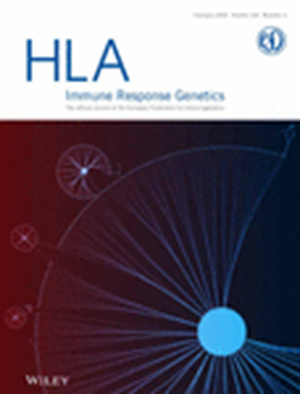De Novo HLA Antibodies Are Associated With an Increased Risk of Severe Acute Graft-Versus-Host Disease Following Unrelated Donor Haematopoietic Stem Cell Transplantation
Abstract
The clinical relevance of de novo HLA antibodies in haematopoietic stem cell transplantation (HSCT) is yet incompletely defined. This prospective, single-centre study recruited adult patients with malignant haematological diseases receiving their first unrelated donor HSCT. Serum samples from 124 patients were screened for HLA antibodies before and after HSCT. It was found that 29 out of 61 females (47.5%) and 8 out of 63 males (12.7%) had HLA antibodies prior to HSCT. After HSCT, 31 out of 37 patients retained HLA antibody positivity, whereas 72 out of 87 maintained HLA antibody negativity. The 21 remaining patients changed their status: six turned HLA antibody-negative, while 15 became HLA antibody-positive. No donor-specific HLA antibodies (DSA) were identified prior to HSCT. One patient generated a single DSA together with the batch of non-donor-specific HLA antibodies (NDSA) after HSCT. The remaining 14 patients developed only de novo NDSA. Univariable Cox regression analysis revealed that the presence of all de novo HLA antibodies was associated with an elevated risk of Grade III–IV aGVHD (p = 0.012; HR 3.286) at 180 days after HSCT and neared statistical significance for delayed neutrophil engraftment (p = 0.056; HR 3.836). Multivariate Cox regression analysis indicated that only de novo HLA antibodies are an independent prognostic factor for the increased incidence of Grade III–IV aGVHD. The limited size of our cohort and the varied range of haematological malignancies have limited confidence in our findings. Thus, additional data obtained from larger patient cohorts is essential for the correct evaluation of the clinical relevance of de novo DSA and NDSA on HSCT outcomes.

 求助内容:
求助内容: 应助结果提醒方式:
应助结果提醒方式:


